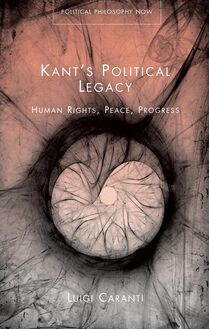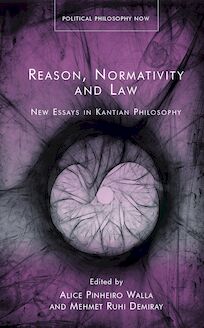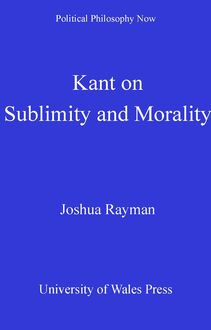Deleuze and Guattari , livre ebook
148
pages
English
Ebooks
2009
Obtenez un accès à la bibliothèque pour le consulter en ligne En savoir plus
Découvre YouScribe en t'inscrivant gratuitement
Découvre YouScribe en t'inscrivant gratuitement
148
pages
English
Ebooks
2009
Obtenez un accès à la bibliothèque pour le consulter en ligne En savoir plus
Publié par
Date de parution
01 octobre 2009
Nombre de lectures
2
EAN13
9780708322314
Langue
English
Poids de l'ouvrage
1 Mo
Publié par
Date de parution
01 octobre 2009
Nombre de lectures
2
EAN13
9780708322314
Langue
English
Poids de l'ouvrage
1 Mo
07 Bibliography:Aesthetics and Politics 3/4/09 14:38 Page 13200 Prelims:Aesthetics and Politics 6/4/09 14:33 Page i
POLITICAL PHILOSOPHY NOW00 Prelims:Aesthetics and Politics 6/4/09 14:33 Page ii
Chief Editor of the Series:
Howard Williams, Aberystwyth University, Wales
Associate Editors:
Wolfgang Kersting, University of Kiel, Germany
Steven B. Smith, Yale University, USA
Peter Nicholson, University of York, England
Renato Cristi, Wilfrid Laurier University, Waterloo, Canada
Political Philosophy Now is a series which deals with authors,
topics and periods in political philosophy from the perspective of
their relevance to current debates. The series presents a spread of
subjects and points of view from various traditions, which include
European and New World debates in political philosophy.00 Prelims:Aesthetics and Politics 6/4/09 14:33 Page iii
POLITICAL PHILOSOPHY NOW
Deleuze and Guattari:
Aesthetics and Politics
Robert Porter
UNIVERSITY OF WALES PRESS • CARDIFF • 200900 Prelims:Aesthetics and Politics 6/4/09 14:33 Page iv
© Robert Porter, 2009
All rights reserved. No part of this book may be reproduced in any
material form (including photocopying or storing it in any medium
by electronic means and whether or not transiently or incidentally
to some other use of this publication) without the written
permission of the copyright owner except in accordance with the
provisions of the Copyright, Designs and Patents Act 1988 or
under the terms of a licence issued by the Copyright Licensing
Agency Ltd, Saffron House, 6–10 Kirby Street, London, EC1N
8TS. Applications for the copyright owner’s written permission to
reproduce any part of this publication should be addressed to The
University of Wales Press, 10 Columbus Walk, Brigantine Place,
Cardiff, CF10 4UP.
www.uwp.co.uk
British Library Cataloguing-in-Publication Data
A catalogue record for this book is available from the British
Library.
ISBN 978-0-7083-2159-1
e-ISBN 978-0-7083-2231-4
The right of Robert Porter to be identified as author of this work
has been asserted by him in accordance with sections 77, 78 and
79 of the Copyright, Designs and Patents Act 1988.
Printed in Great Britain by CPI Antony Rowe,
Chippenham, Wiltshire00 Prelims:Aesthetics and Politics 6/4/09 14:33 Page v
For My Family00 Prelims:Aesthetics and Politics 6/4/09 14:33 Page vi00 Prelims:Aesthetics and Politics 6/4/09 14:33 Page vii
Contents
Acknowledgements ix
Introduction 1
1 Language and Literature 6
2 Painting 41
3 Architecture 71
Conclusion 101
Notes 107
Bibliography 129
Index 13300 Prelims:Aesthetics and Politics 6/4/09 14:33 Page viii00 Prelims:Aesthetics and Politics 6/4/09 14:33 Page ix
Acknowledgements
Thanks to colleagues and friends in the School of Media, Film and
Journalism at the University of Ulster for enlivening my thought
and sharing the odd joke or two along the way. As director of the
Media Studies Research Institute at the University of Ulster, Máire
Messenger-Davies provided financial support which gave me more
autonomy and space to think and write. I am very grateful for help
from graduate students and colleagues in sharing some of my
teaching responsibilities during the writing of the book; I would
particularly like to give my thanks to Ciara Chambers and Phil
Ramsey. I am also grateful to those undergraduate students in my
Aesthetics and Politics class who critically engaged with much of
the material set out in this book and, in so doing, helped me clarify
my own thinking.
For many a fascinating conversation about the relation between
aesthetics and politics, for allowing me to appropriate his ideas
and his work as an artist, for reading and commenting on parts of
the manuscript as it was developing, I am grateful to Daniel
Jewesbury. Deepest thanks also go to my friend and long-time
intellectual comrade Iain Mackenzie for reading significant chunks
of the manuscript and making my ‘encounter’ with Deleuze and
Guattari more vital than it would otherwise have been. Last, but
by no means least, I am indebted to Sarah Lewis and Dafydd Jones
at the University of Wales Press for their patience, responsiveness
and support of this project.
Closer to home, and most importantly, I want to give my most
heartfelt thanks to my remarkable family; particularly my wife
Kerry-Ann and daughters Jessica and Anna. Jessica and Anna are
the comic-philosopher-architects in our house, humorously
constructing a world that is in constant need of ever-new concepts
or ideas, ideas which provoke us all to renew our thinking.
KerryAnn is a constant source of love, commitment and support.
This book is dedicated to my family.00 Prelims:Aesthetics and Politics 6/4/09 14:33 Page x01 Introduction:Aesthetics and Politics 3/4/09 14:35 Page 1
Introduction
This short book is intended to perform a rather specific two-fold
function, namely (a) to give a feel for some of Gilles Deleuze and
Félix Guattari’s writings on the arts and (b) to extrapolate from
these writings the idea that thinking the political, that political
1theory if you like, can have aesthetic form. Or, put another way;
that the arts as such can be thought to be forms of political theory.
So how, then, can Deleuze and Guattari’s writings be mobilized in
order to render concrete the idea that the arts can be thought to be
forms of political theory? The core guiding intuition here is this:
that the arts always-already are forms of political theory to the
degree that they actively exercize their capacity – we could also call
this their autonomy – to think the political and, in so doing, shift
the meanings we may subsequently attach to the ‘political’. This
intuition is implicitly and explicitly at play in Deleuze and
Guattari’s writings on the arts, and we can begin to see this when
considering their engagements with language and literature,
2painting and architecture.
In chapter one, we will engage Deleuze and Guattari’s writings
on language and literature, in particular their philosophy of
language and linguistics as outlined in A Thousand Plateaus and
3their treatment of the literature of Franz Kafka in Kafka. In the
first part of the chapter, we shall see emerge two important
intuitions that give shape to a Deleuze-Guattarian analysis of language.
First, they insist on affirming the power, vitality or capacity – the
autonomy – of language to intervene directly in the social and
political field. Second, there is a critical dismantling of the notion
that language somehow finds its primary function in
representation, where ‘representation’ means the communication or exchange
of information. As will be seen, Deleuze and Guattari’s philosophy
of language implies an encounter with a series of concepts or
conceptual terms – for instance, ‘indirect discourse’, the ‘collective
assemblage of enunciation’, ‘order-word’ or ‘slogan’ – that all seek
to foreground the capacity and power of words to shape and order01 Introduction:Aesthetics and Politics 3/4/09 14:35 Page 2
2 INTRODUCTION
things in the social-political world. Put simply, Deleuze and
Guattari force us to confront the idea that there is always a
becoming-political in the things we name ‘language and literature’
precisely because naming, or language-use, implies a shaping or
ordering of the ‘political’ as such, rather than its re-presentation.
So, if language has a capacity and power to intervene directly in
the political, if it can shape the meaning we attach to the ‘political’
as such, then this obviously implies that our very concept of the
political, the political concepts we use in investing meaning or
significance in our world, assume a form that is mediated through
language-use. As we shall see, particularly in the second and third
parts of chapter one, this intuition very much informs the way
Deleuze and Guattari engage a body of ‘literature’ such as Kafka’s.
In Kafka, Deleuze and Guattari are expressly concerned to
emphasize the political thinking that is expressed in and through his
writing. Two points are worth anticipating here. First, that Kafka’s
concept of the political is immediately connected to a form of
writing that is ‘comic’ or ‘humorous’ where, for example, political
authority is subject to a comic or humorous exaggeration and
critique; a ‘becoming-molecular’ as Deleuze and Guattari would
4say. Second, we shall see that political concepts such as ‘Law’
become subject to a critique in a Kafka novel like The Trial to the
extent that they are caught up in a movement that is
defamiliarizing or, in Deleuze-Guattarian terms, ‘deterritorializing’. It is
crucial to emphasize that Deleuze and Guattari would consider
Kafka’s writing as something that embodies and autonomously
enacts this movement; a deterritorialization of the world that ‘is
itself political’ as they put it. Put simply, Kafka’s writing or use of
language does not simply mediate the political by commenting or
making representations about how, for example, the law works or
ought to work; it directly and immediately thinks the political
through the movements it charts, the concepts it creates and,
5consequently, the deterritorializations it brings about.
In chapter two we move onto Deleuze and Guattari’s writings on
painting, witnessing this continued and sustained emphasis on the
deterritorializing power of the arts. As we shall see, particularly in
the second part of the chapter, the Deleuze and Guattari of A
Thousand Plateaus are specifically interested in the way that
painting can function to deterritorialize what they call the ‘face’,
and in the way this deterritorialization of the face implies or thinks














